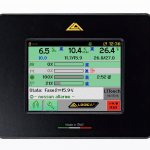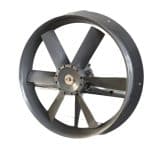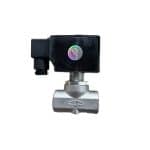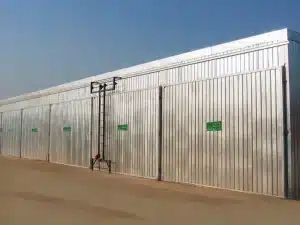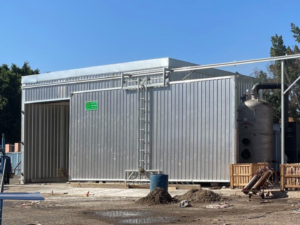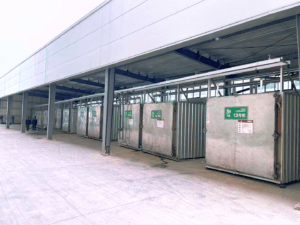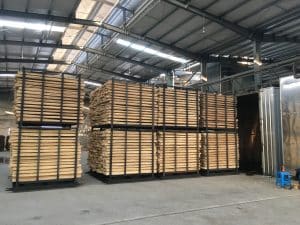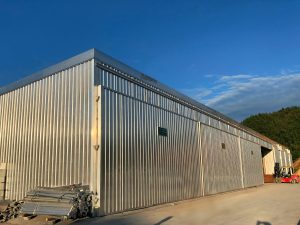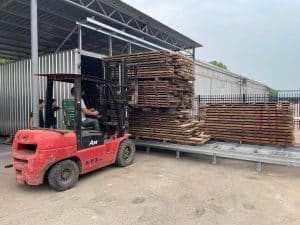Purchasing an industrial lumber kiln is a major investment—one that affects your drying quality, production capacity, energy consumption, and long-term profits.
But here’s the truth:
👉 Most buyers don’t know what questions to ask suppliers — until problems appear later.
(This is why many projects exceed budget, consume too much energy, or fail to meet production targets.)
This guide gives you a simple, clear, buyer-friendly list of the 12 most important questions to ask any lumber kiln supplier.
Whether you’re a factory owner, importer, or project manager, this will help you avoid mistakes and choose the right solution.
1. What kiln technology do you offer? Which one is best for my wood?
Different suppliers specialize in different kiln types:
- Conventional/Traditional kilns
- High-temperature kilns
- Dehumidification kilns
- Steam kilns
- Biomass kilns
- Vacuum kilns
✔ Ask which type fits your wood species, moisture targets, and production goals.
2. What wood species have you successfully dried?
Every species behaves differently. A trustworthy supplier can show experience with:
- Pine
- Hardwood
- Eucalyptus
- Radiata pine
- Tropical species
- Export-grade materials
- Pallets
✔ Ask for example drying schedules or case studies.
3. What is the real drying cycle time?
Suppliers should provide:
- Sample drying curves
- Expected cycle time for each species
- References from existing customers
✔ Avoid suppliers who make unrealistic promises.
4. How precise is your temperature and humidity control?
A good kiln offers:
- Stable temperature curve
- Accurate sensors
- Balanced airflow
- Consistent drying chamber conditions
✔ This directly affects drying quality and defect rate.
5. Does your kiln support automation and remote control?
Modern kilns should include:
- PLC/Touch screen control
- Remote monitoring
- Data logging
- Automatic schedule control
✔ Automation reduces operator errors and improves yield.
6. What energy options are available? Which one is best for my country?
Energy cost is a long-term expense. Ask whether the kiln can run on:
- Steam
- Biomass
- Electricity
- Gas
- Solar (hybrid)
✔ Request real energy consumption (kWh or kg/m³) based on existing projects.
7. What materials are used in the kiln chamber?
High-quality kilns use:
- Marine-grade aluminum
- Stainless steel
- High-density insulation
✔ Better materials mean longer lifespan and fewer repairs.
8. What is the expected lifespan of the kiln?
Well-built kilns run 15–20+ years.
Ask about:
- Anti-corrosion protection
- Fan durability
- Structural warranty
9. Do you offer on-site installation and training?
A reliable supplier provides:
- Full installation support
- Operator training
- Drying parameter teaching
- Troubleshooting guidance
✔ If not, the kiln may not run properly.
10. What after-sales service do you provide?
Important questions:
- Do you have engineers available?
- Remote technical support?
- Emergency service?
- Spare parts supply?
✔ Good service protects your investment long-term.
11. What is included in the quotation? Are there hidden costs?
Ask clearly if the price includes:
- Heating system
- Control system
- Fans & sensors
- Wiring, pipes, insulation
- Freight
- Installation labor
Hidden costs may include:
- Boiler
- Foundation
- Power upgrades
- Extra insulation
- Spare parts
✔ A transparent supplier will give a complete cost breakdown.
12. Can you share real customer cases or arrange a factory visit?
This is the best way to verify the supplier’s experience.
Ask for:
- Case studies
- Contact information of customers
- Video of running kilns
- Factory tour (online or on-site)
✔ Good suppliers are proud to show their installations.
Conclusion
Our real project experience shows:
- Traditional and modern kilns can both deliver long-term value
- Precision drying ensures high-quality products for export, furniture, instruments, and flooring
- Asking the right questions saves cost, time, and avoids operational risks
💡 Pro Tip: Use the checklist, compare suppliers, and request references—real project cases prove supplier credibility.


